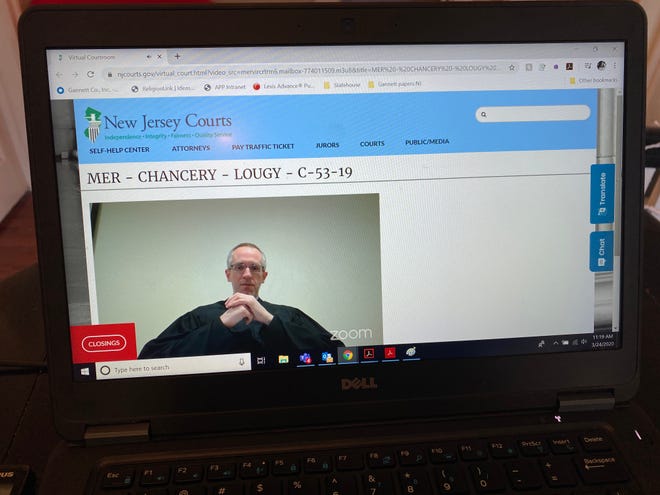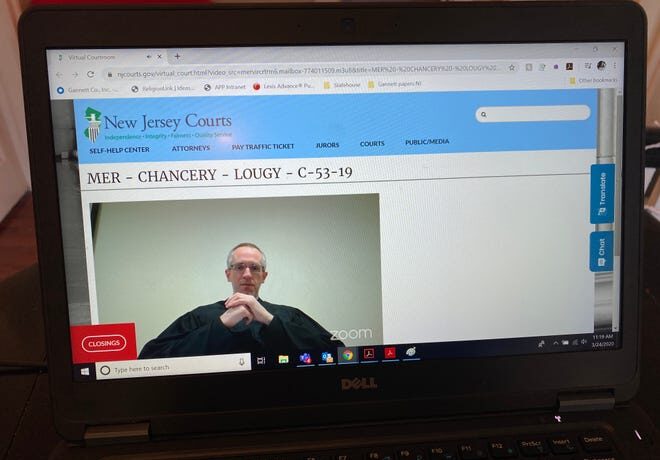A Superior Court judge dismissed a lawsuit Friday challenging the constitutionality of a recent campaign finance overhaul brought by the former head of the elections agency that oversees the rules.
This was the second of two lawsuits filed by Jeff Brindle, the former executive director of the Election Law Enforcement Commission, or ELEC, in the past year against Gov. Phil Murphy before Brindle retired in October.
In the case filed in April and dismissed Friday, Brindle sought to block controversial sections of the Elections Transparency Act (S2866) signed into law April 3, including:
- a provision that allowed Murphy to directly appoint the four members of the agency board without the advice and consent of the Senate within a temporary 90-day period
- a clause that slashed the amount of time the commission has to investigate campaign finance violations from 10 years down to two years after a violation was committed. The law made the change retroactive, clearing nearly half of the agency’s caseload of allegations being investigated, including four 2017 complaints against the Democratic and Republican leadership committees.
“The legislation advanced several valid purposes that pertain directly and appropriately to its subject matter,” wrote Judge Robert Lougy, a former acting New Jersey Attorney General.

“Eliminating any ELEC commissioner vacancies and avoiding, at least for the initial appointments, any delays inevitably attendant to the nomination and advice and consent process help to enforce New Jersey’s campaign finance laws, which in turn increases the trust of the public in their government,” Lougy wrote.
He dismissed the case with prejudice, meaning Brindle cannot file the same lawsuit again.
The governor’s office declined to comment on the judgment.
Expects to appeal
“We respectfully disagree with Judge Lougy’s decision because we feel it ignores the corrupt buildup to this statute that was plainly intended to punish the former commissioners because they would not go along with the plan to force Brindle’s removal,” said Bruce Afran, Brindle’s attorney.
“I don’t know whether Mr. Brindle will want to appeal,” Afran said. “I imagine he will because this is a significant public policy question.”
The lawsuit alleged the Elections Transparency Act was “special legislation,” designed to target one agency for special treatment, and that the Legislature interfered with ELEC’s independent enforcement powers.
The state Attorney General’s Office asked the court to dismiss the case in September, arguing the constitution doesn’t require ELEC members to be appointed with advice and consent of the Senate, and that because ELEC was created by the Legislature, lawmakers can change the commission as it sees fit.
“It really just boils down to — that I believe that plaintiff is alleging — that if the Legislature harbors impure thoughts when it passes a bill, therefore the law is special,” Peter Slocum, an attorney with Lowenstein Sandler arguing on behalf of the State of New Jersey and Murphy, said in oral arguments on Friday.
“The court should not turn into an inquisitor of legislators demanding certifications or cross examination to ask each politician why did he or she vote a particular way,” Slocum said.
Afran, Brindle’s attorney, argued that the judge couldn’t look at that law in isolation, and needed to consider “a pattern of activity in which the governor targeted Jeff Brindle for removal” after he wrote a satirical article about dark money — political spending paid for by donors whose identity is not required to be reported to the public.
Tried to get Brindle to resign
Earlier this year, three top Murphy staff members presented Brindle with a written resignation letter on the governor’s letterhead and accused him of having made an anti-gay comment, according to the lawsuit.
Brindle sent an email to a staffer on Oct. 11 in response to an announcement about National Coming Out Day, writing, ““Are you coming out? No Lincoln or Washington’s Birthday’s [sic] but we can celebrate national coming out day.”
After Brindle refused to resign, Chief Ethics Officer Dominic Rota called ELEC commissioners and said he wanted Brindle fired because of an “anti-gay” and “racist” statement. The commissioners refused to take action.
In February, an amendment tucked into the proposed “Elections Transparency Act” gave the governor power to appoint the executive director, instead of having the four ELEC commissioners do so.
After the Senate and Assembly postponed votes on the bill days after the amendments were added, a new version of the bill allowed the governor to vacate the current ELEC board — where three commissioners were serving in holdover capacity and there was one vacancy — and allow the governor to choose the bipartisan appointments without Senate involvement for a temporary period.
“We can’t ignore this pattern which demonstrates an illicit purpose of the bill,” Afran said.
Legislation ‘serves a valid purpose’
The judge wrote, “the Court concludes that the legislation serves a valid purpose, concerns valid subjects, does not unreasonably exclude any person or entity, and employs a reasonable classification in limiting its scope to ELEC.”
Brindle filed another lawsuit in March alleging a civil rights violation against Murphy, Murphy’s counsel Parimal Garg, former Chief of Staff George Helmy and Rota for a “conspiracy to extort and force” his resignation.
The lawsuit was dismissed due to a clerical error, and Afran plans to file a motion to reinstate the case.

















